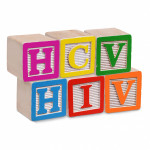Having hepatitis C virus (HCV) in addition to HIV is associated with a higher risk of non-AIDS-defining cancers compared with having HIV alone, aidsmap reports. This elevated risk, seen among a group of HIV/HCV-coinfected individuals who largely went uncured of hep C, remained even after researchers factored out hepatocellular carcinoma (HCC, the most common form of liver cancer).
Publishing their findings in the journal AIDS, Spanish researchers conducted a retrospective study of 2,318 adults with HIV, 37 percent of whom were coinfected with HCV, who received care between 1993 and 2014. Just 17 percent of the coinfected individuals received hep C treatment (with interferon in all cases); 48 percent of them achieved a sustained virologic response 12 weeks after completing therapy (SVR12, considered a cure).
During an average 12 years, or 27,086 cumulative years, of follow-up, 185 members of the cohort, including 68 people with hep C coinfection, received a cancer diagnosis. Overall, the cancer diagnosis rate per 100,000 cumulative years of follow-up was 696 cases. For those with HIV/HCV coinfection, the rate was 415 cases, compared with 377 cases among those who had only HIV, known as being monoinfected.
Compared with the general population, the diagnosis rate for all types of cancer among the entire cohort was 3.8-fold higher; the rate for AIDS-related cancers was 27.2-fold higher; and the rate of non-AIDS-related cancers was 2.3-fold higher. Also compared with the general population, the non-AIDS-related cancer diagnosis rate was 1.8-fold higher for those with HIV monoinfection and 3.4-fold higher for those with HIV/HCV coinfection.
During the study’s follow-up, the rate of AIDS-related cancers fell while the rate of non-AIDS-related cancers rose. Being older was associated with a higher likelihood of a cancer diagnosis, both for the mono- and coinfected individuals.
Compared with those with HIV monoinfection, those with HIV/HCV coinfection had a 1.8-fold increased risk of a non-AIDS-related cancer diagnosis. After factoring out liver cancer, the researchers found this risk was still elevated but reduced to a 1.26-fold increased risk.
To read the aidsmap article, click here.
To read the study abstract, click here.







Comments
Comments